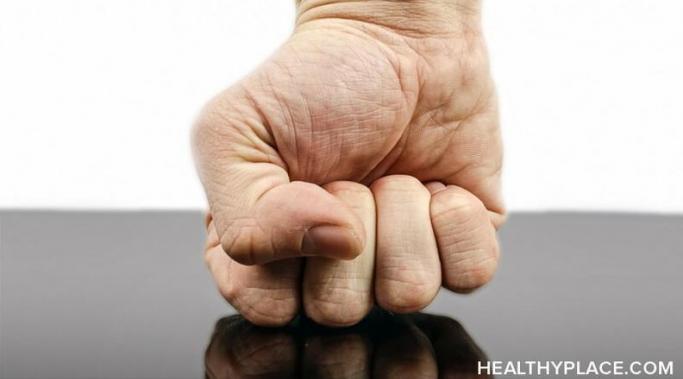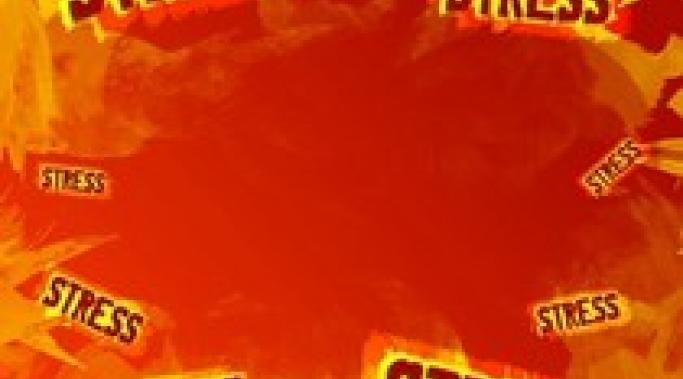Blogs
Although unseen in the tumultuous immediate aftermath of The Day I Left Him, justice was served. Nevertheless, in my pain, I felt
slighted by my son who ran from me
betrayed by my husband who wouldn't admit the truth
punished by the judge who gave custody to my abuser
unable to see where my actions caused him any tragic feelings remotely similar to my own (I wanted him to hurt, and he didn't)
It seemed he'd won. I felt justice wasn't only blind, but also the stupidest philosophical idea ever imagined by mankind.
In part one of this series, I talked about the lure of anorexia and how, at first, I didn't think of anorexia as an addiction. But it is and, of course, the first step to breaking the chains of addiction to starving is both very simple and complex at the same time.
I needed to eat and reach a healthy weight. That required me to eat three meals and drink three Ensure Plus daily, and watch as the scale slowly climbed upward. This is very frightening for those of us struggling with anorexia nervosa.
But there is no other way. Until I achieved full and consistent nutrition, the eating disorder part of my brain was going to keep telling me to starve myself. I would be forever chained to anorexia.
Fear denied, repressed, suppressed, or put out of mind is not fear extinguished.
Treating anxiety: 'as if'
I've been told that acting 'as if' I'm not nearly as anxious as I am is a helpful thing. It's also dangerous. As with almost any technique sometimes is fine but if you're anything like me and you'll do whatever you have to do to be able to put your anxiety aside and function, and if what you want is to go on with as much of life as you can, uninterrupted by fear, then it can become destabilizing.
Resilience is a gradual learning process. It can be useful in both personal and work situations. These are only recommendations on building resilience, there are many more. Test a few out and try the ones that work for you.
I've receive innumerable comments from readers about how their child's psychiatric illness has taken a toll on their marriages. I'd be lying if I said my husband and I are the exception. The tension in our house has been thick enough to spread on a bagel, and over the course of this year, it's gotten progressively worse.
I remember crawling into my soft bed, fan blowing softly but enough that I tucked my hair behind my ear to keep it from tickling my nose. The covers were heavy, cool with a hint of Downy April Fresh; my pillow cradled my head in a mother's embrace. I fell asleep happy with the day, quietly looking forward to his return late in the night.
The house was spotless and smelled fresh. The children were quiet in their own beds for a change. Not one sound in the whole house that shouldn't be there. I drifted to sleep so slowly I consciously noticed the change in my breath as I fell deeper and deeper into dreams. I let myself go.
BANG! I moved so fast my brain didn't know I was sitting.
BANG! "What?! What is it?" I said, my heart pounding in the darkness.
A shadow crossed in front of the window headed toward the other dresser. It was him. I read his body language in the split second it took for him to pass through the moonlight. He was pissed.
BANG! BANG! BANG! Three more drawers opened and slammed. "Where are my f@c&i*g socks, KELLIE?" he yelled.
"Ben is so lucky to have you."
That's what I've been hearing a lot lately - well, from those whom I am not criticizing for shoddy case management.
And, that's a nice compliment for sure - but, in the immortal words of Carrie Bradshaw (Sex in the City): "I couldn't help but wonder...": What about all the people with mental illnesses whose families have given up on them?
We all have gut reactions to information. It's the reaction when our stomach knots or tumbles, our breathing quickens or stops, our eyes light up or look down. It's the reaction we have before realizing we're having a reaction.
And gut reactions around mental illness can be powerful. The problem is, our gut reactions are so often wrong about mental illness and mental illness treatment.
Childhood obesity is a real problem today. The Centers for Disease Control notes that childhood obesity rates have tripled over the last 30 years and that over 20 percent of the kids in the U.S., ages 6-11, are now categorized as obese.
Childhood obesity not only leads to physical and medical problems, but social and psychological problems such as stigmatization and poor self-esteem also appear in children who are overweight.
A new study has come out trying to shed light on the relationship between stress and alcohol, and that it is a bi-directional relationship. This isn’t the first study, nor will it be the last, on alcohol and stress. It is a very complex relationship, and often hard to study because it sometimes relies on anecdotal reports.







